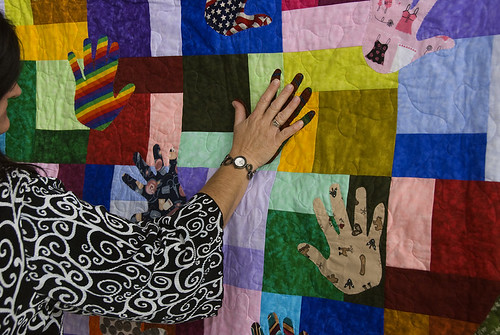Feb 15, 2012
 Diversity in any learning environment is a given, and paying attention to the different types of learners you’ll encounter is important. There are so many varieties of people and these are just 10 of the common types you’ll encounter when you facilitate (we’ll have more on types of learners early next week, too).
Diversity in any learning environment is a given, and paying attention to the different types of learners you’ll encounter is important. There are so many varieties of people and these are just 10 of the common types you’ll encounter when you facilitate (we’ll have more on types of learners early next week, too).
1. Talkative. This person loves to talk and has something to say about everything.
You can say: “I appreciate your comments, but let’s hear from someone else.”
You can do: Use more group work so everyone gets a chance to talk.
2. Hostile. This person enjoys being aggressive and may throw negative phrases or ideas into the group on a regular basis.
You can say: “Thank you for your thoughts. What does the group think about this?”
You can do: Talk to the person in private to check if there is an underlying issue you should know about.
3. Silent. This person is quiet and doesn’t participate in group discussions.
You can say: “I know you have a lot to offer this discussion. It would be great if you can share one of your ideas with the group.”
You can do: Use more pair work to increase the person’s safety and comfort level. People should always be giving the option to “pass” or “opt out” in the large group.
4. Know-it-all. This person thinks they know better than anyone else and has an opinion about everything.
You can say: “That is one point of view. What do others think?”
You can do: Use more small group or pair work to let everyone talk.
 5. Class clown. This person has a funny joke or comment for just about everything.
5. Class clown. This person has a funny joke or comment for just about everything.
You can say: “We all enjoy a little fun. But right now let’s get serious and concentrate on the topic.”
You can do: You can talk to the person in private and ask him or her to control the jokes because it can be distracting for others.
6. Negative. This person always sees the negative or gloomy side to everything.
You can say: “I understand your point of view. What suggestion do you have to change the situation?”
You can do: Affirm the person’s comments but don’t let them stay stuck there.
7. Personality clashes. This person does not get along well with another person (or you!) and will make negative comments or hurtful remarks at inopportune times.
You can say: “I suggest that we keep personalities out of the discussion. Let’s get back to the topic.”
You can do: Whether you are involved, or two learners just don’t see eye-to-eye, it is important to talk privately about the issue and how to resolve it.
8. Resistor. This person is enjoys resisting whatever is put before him.
You can say: “How about you give it a try and understand that this way of doing things is important for some of your peers.”
You can do: Always try to explain what you are doing and why, so learners know it has a reason.
9. Helper. This person enjoys helping others.
You can say: “Thank you so much for doing that. This is very helpful.”
You can do: Put up a sign-up list of things that you need assistance with and invite people to sign up for each workshop. For example, someone may not mind tidying up after each workshop.
10. Resource. This person enjoys learning and knows tons.
You can say: “I so appreciate your wealth of knowledge on the topic.”
You can do: Ask someone in your group to help you start a bulletin board in the hall with information or some other public information space.



